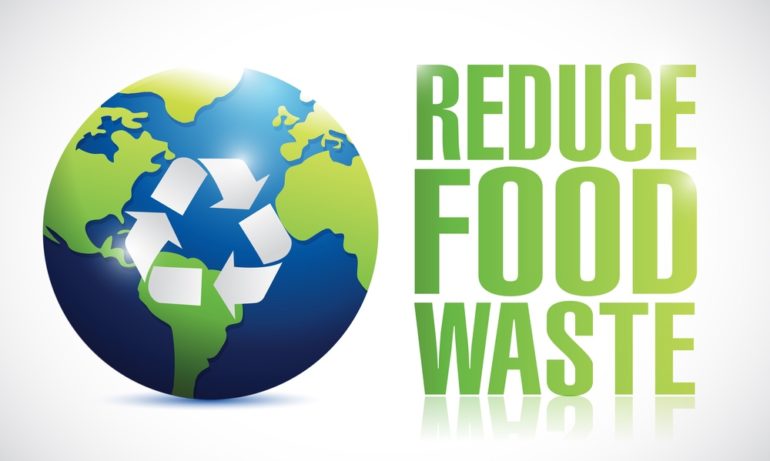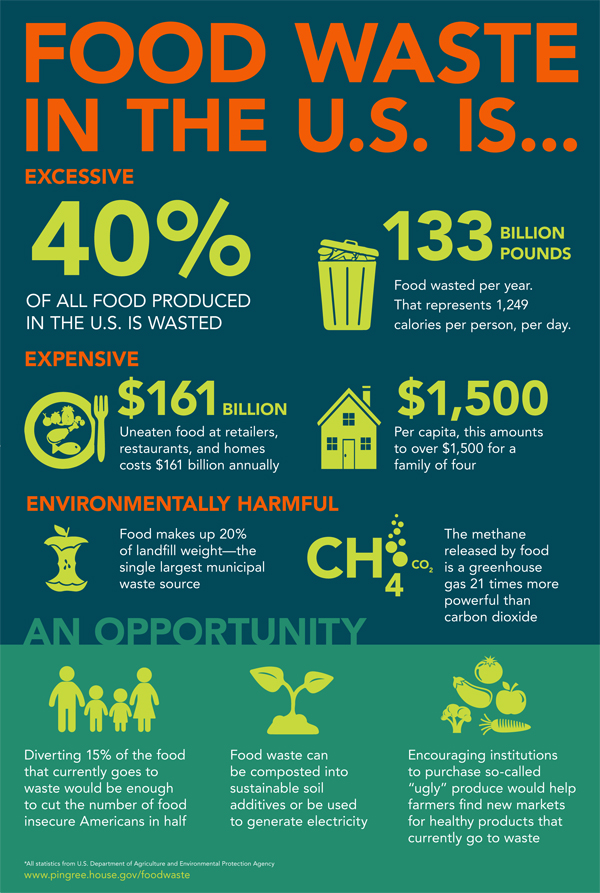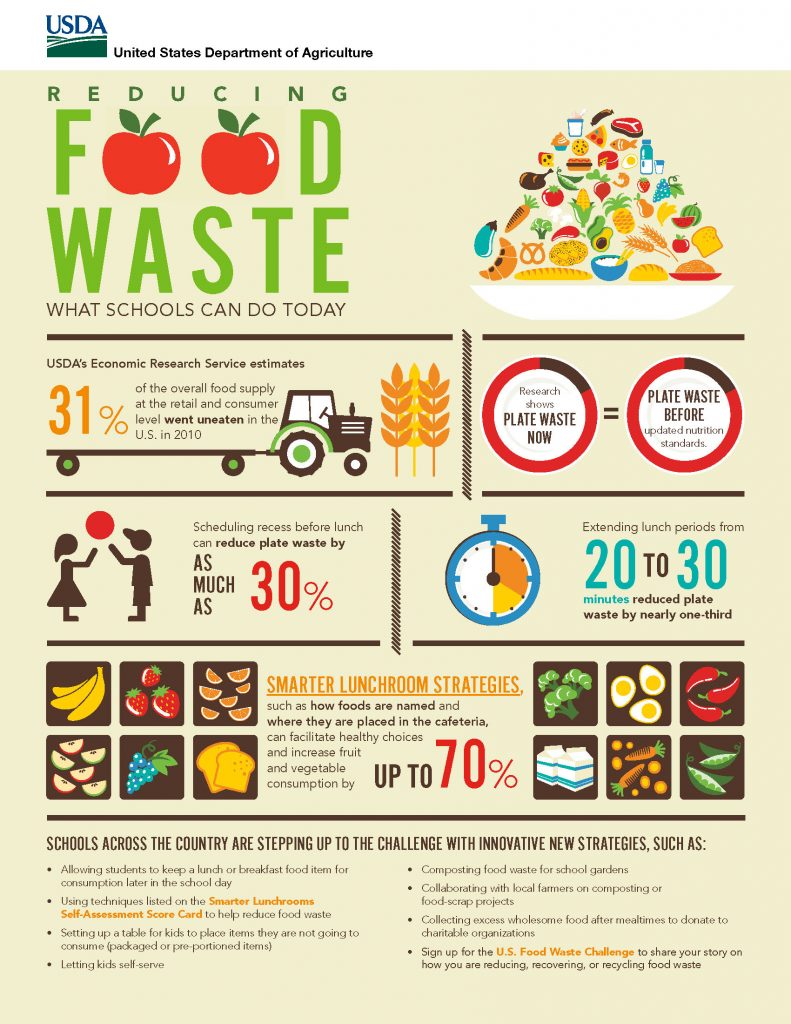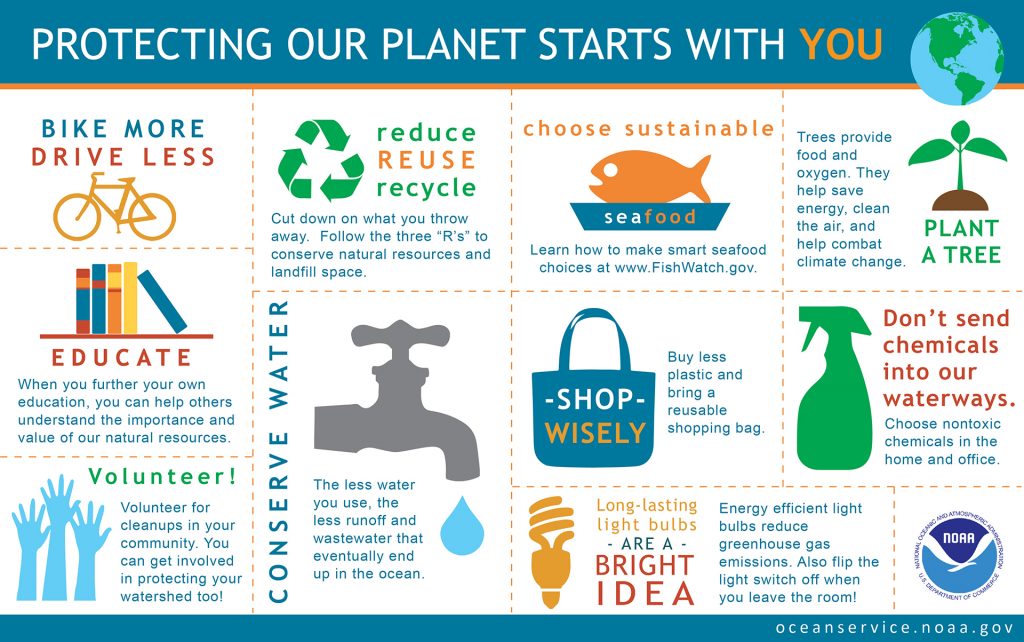Food waste is a huge problem and has a direct negative impact on the environment. On Earth Day (April 22), strive to do your part and spread awareness about this prominent and often overlooked issue.
Raise your environmental awareness by learning about food waste and what you can do to curb it in your own home.
Reducing food waste starts in the home, and you can make a difference by taking one small step at a time.



Defining Food Waste
The Food and Agriculture Organization of the United Nations (FOA) defines food waste as, “discarding of food that is safe and nutritious for human consumption along the entire food supply chain, from primary production to end household consumer level.”
U.S. Food Waste Statistics
According to the EPA, the U.S. discards some 37 million tons of food each year—a third of all the food it produces—yet just five percent of that is composted. All the rest is piled into landfills or incinerated. More food fills in these trash pits than any other material, says the EPA, constituting 21 percent of all of the country’s municipal solid waste.



Along with the wasted food goes all the water, energy, pesticides, fertilizer, labor and other inputs that go into growing, shipping, processing, marketing and preparing it. When landfilled, wasted food also generates methane, a powerful greenhouse gas.
- Learn about proper hygiene, cross contamination, cold and hot food safety, foodborne pathogens, and best practices to prevent foodborne illness.
- Food Manager Training & ANSI Certification - $99.00
- Food Handler Training - only $7.00!
- HACCP Training: 16hr/4hr/1hr
- Food Allergy Training - $15.00
- Enter Promo "train10off" at Checkout
Basic Tips to Reduce Food Waste
Reduce food waste by planning ahead and following these easy and practical tips:
- Shop smart. Don’t buy too much food.
When you go food shopping, make sure you don’t buy too much food that will go uneaten and rot in the refrigerator. - Divide food into smaller portions. Don’t over-serve food.
Some people may have eyes bigger than their stomachs and load their plates with more than they could eat in one sitting. Using small plates can help with that. Likewise, don’t over-serve friends and family when you’re cooking meals. - Save and eat leftovers safely.
Label your leftovers for safety and so you can keep track of how long they’ve been in your fridge or freezer. Then rotate them into your daily or weekly routine. - Store food in the optimum places.
Storing food in the right place helps with their longevity. There are certain kinds of fruits and vegetables that do better at room temperature versus in the refrigerator. Food Republic has an infographic to help you pinpoint where your various foods should go, while Heart.org breaks down where to put your fruits and veggies to make them last longer. - Avoid clutter and better organization in your fridge, pantry and freezer.
Forgetting food is there until it’s no longer safe to consume is a huge waste. Keep things neat and visible, and use the “first in, first out” principle: After you buy new groceries, move the older products to the front so you consume them first. - Treat expiration and sell-by dates as guidelines.
There are no federal requirements for putting expiration dates on food, except for infant formula. As a result, there are a wide variety of phrases used on labels to describe quality dates. Companies use “sell-by dates”, “use-by dates”, and “expiration dates” as a guideline to help you determine the freshness of perishable products. Dates listed on food don’t give much indication if a product has spoiled or not. The USDA has guidelines on how long to keep perishable items in the fridge here. - Donate to food banks and farms.
Before you throw away excess food, look into food banks and charities where you can bring items you know you’re not going to consume before they go bad, and give them to people in need. You can find local food banks through Feeding America and WhyHunger.



NRDC – Food Waste Reports
The NRDC works to make America’s food system more efficient and less wasteful. We help cities redirect surplus food to people in need. We inspire consumers to waste less food at home and equip them with the strategies to make it happen.
Cities are in a great positioned and are motivated to limit the amount of wasted food in their garbage and landfills. So to help cities waste less food, the NRDC has developed two reports and a series of case studies with support from The Rockefeller Foundation.
- NRDC’s baseline food waste report, Estimating Quantities and Types of Food Waste at the City Level, offers critical data about the amounts, sources, and types of food going to waste in three U.S. cities. The report includes technical appendices available under a separate cover.
- A second report, Modeling the Potential to Increase Food Rescue, reveals opportunities at the city level for redirecting additional surplus foods to those in need.
- NRDC has also developed a series of case studies highlighting efforts to waste less food from a range of stakeholders, including non-profits, businesses, cities, and states.



What combating food waste reminds us is that ultimately, environmental issues are human health issues, and vice versa. You can’t have good food without clean air, clean water, and clean soils.



